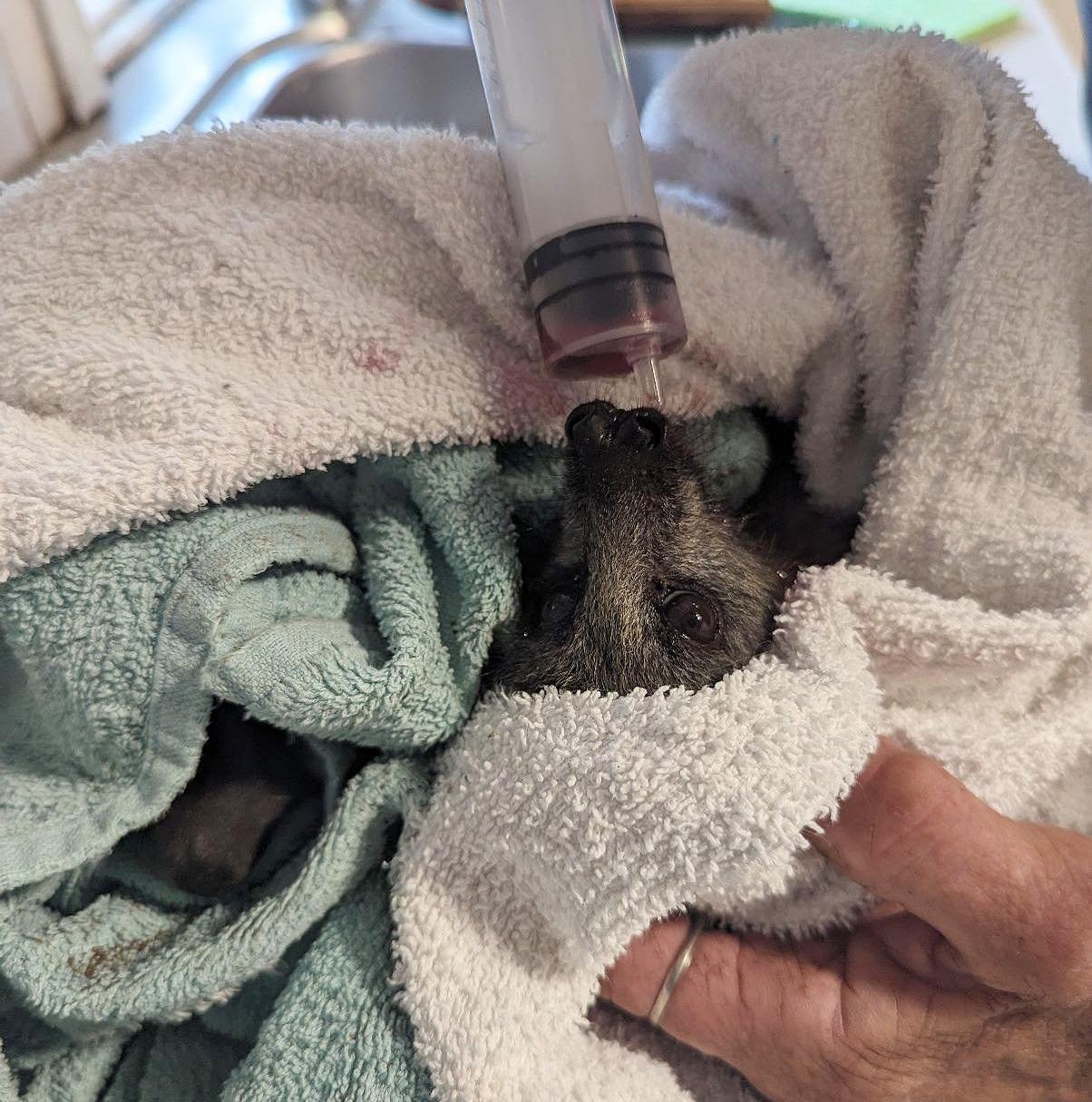A key stone species
Yesterday we received a call about an injured Grey Headed Flying Fox in Crib Point on the Mornington Peninsula.
Members of public noticed it hanging on their shed, in the middle of the day and believed it had an injured wing.
The members of public had already placed the Flying Fox into a bucket, with holes, a lid and blanket, using welding gloves.
We never recommend touching any bat, as they can carry Australian Bat Lyssa virus, and have extremely fragile wings.
Our trained and vaccinated rescuer attended, she decided to leave the bat in the bucket rather than stressing it further by moving her.
The rescuer took the bat to South Oakleigh Wildlife Shelter, where Michele hydrated the bat and gave it a good once over. No injuries were found, and the young female bat will be seen by vets to investigate a possible breathing issue and have her health assessed.
Did you know that grey headed flying foxes are a key stone species, meaning out ecosystem as it is relies on their existence, and without them the ecosystem would drastically change or cease to exist. Grey Headed Flying Foxes are forest makers, dispersing 10s of thousands of seeds every night.
As part of Melbourne now we are running a 4 day hands on workshop at the Ian Potter Centre NGV.
Be sure to see the #theremakingofthings a wonderful installation by Gracia + Louise.
The installation depicts a pocket of restored eucalyptus forest habitat, constructed using a series of images drawn from the NGV Collection.



